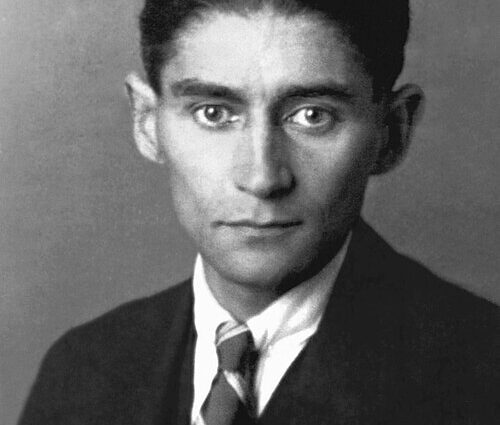Franz Kafka (1883–1924) was a German-speaking Bohemian writer whose work has had a profound influence on modern literature. Born in Prague, then part of the Austro-Hungarian Empire, Kafka was raised in a middle-class Jewish family. He studied law and worked for an insurance company, writing fiction in his spare time. Despite his relatively small body of work and limited recognition during his lifetime, Kafka is now considered one of the most important literary figures of the 20th century.
Kafka’s fiction explores themes of alienation, anxiety, bureaucracy, and the absurdity of existence. His protagonists are often trapped in nightmarish situations where they face incomprehensible and oppressive systems. His most famous novella, The Metamorphosis (1915), tells the story of Gregor Samsa, who wakes up one morning transformed into a giant insect. The work examines issues of identity, isolation, and familial obligation.
Another significant work, The Trial (published posthumously in 1925), follows Joseph K., a man arrested and prosecuted by a mysterious authority for an unnamed crime. It portrays the helplessness of the individual within a faceless, illogical bureaucracy. Similarly, The Castle (also published posthumously) delves into the frustrations of a man seeking acceptance from an inaccessible and arbitrary authority.
Kafka’s style combines precise, clinical prose with surreal and often disturbing imagery. His writing reflects his personal anxieties, particularly his feelings of inadequacy, his troubled relationship with his father, and his fear of failure.
Much of Kafka’s work was published after his death by his friend Max Brod, despite Kafka’s instructions to destroy his manuscripts. Today, the term “Kafkaesque” is widely used to describe situations that are bizarre, illogical, or oppressive.
Kafka’s work remains a powerful expression of the existential dilemmas of modern life, making him a central figure in world literature.


